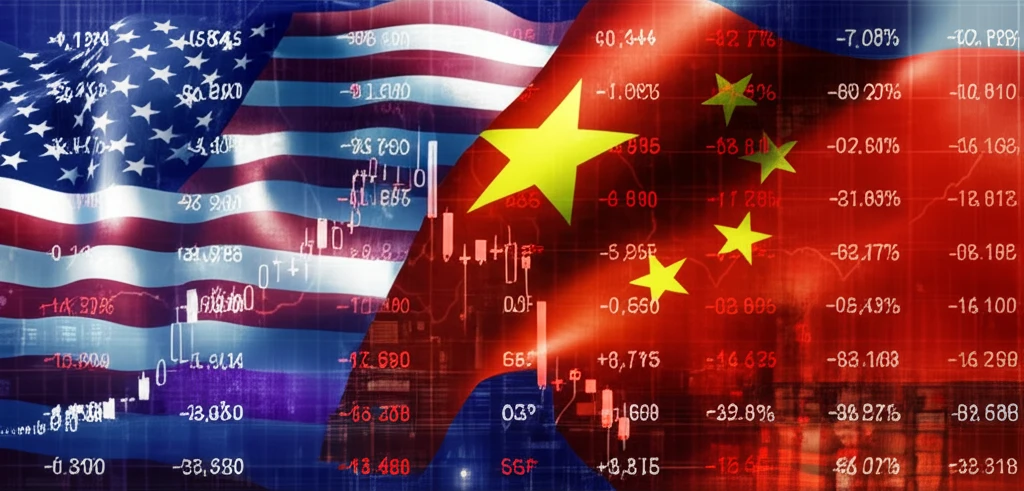
Decoding Wall Street's Impact: How US Economic Jitters Shake Chinese Stocks
"A deep dive into the surprising ways American financial uncertainty influences China's volatile stock market, and what it means for your global investments."
In recent decades, China's stock market has experienced unprecedented growth, drawing worldwide attention. Given the close economic ties between the United States and China, understanding how U.S. economic factors impact Chinese markets is critical for investors and policymakers alike.
A new research paper examines how news-driven uncertainty in the U.S. affects the volatility of China's stock market. The study explores the intricate relationships between the two economic giants, providing insights for navigating the complexities of global finance.
The research uses sophisticated financial models to analyze historical data and identify key trends. This analysis offers practical implications for investors and highlights the importance of considering global factors when making financial decisions.
The Ripple Effect: How US Financial News Impacts Chinese Markets

The study uses the news-implied volatility index (NVIX) to measure uncertainty in the U.S. NVIX reflects public perception by combining front-page coverage in the Wall Street Journal with options' implied volatility. Unlike traditional economic indicators, NVIX captures immediate market reactions to news and events.
- GARCH-MIDAS Model: Decomposes volatility into short-term and long-term components.
- News-Implied Volatility (NVIX): Measures U.S. uncertainty based on news coverage and market reactions.
- Qualified Foreign Institutional Investors (QFII): Program allowing foreign investment in Chinese markets.
- Renminbi QFII (RQFII): Program expanding foreign investment opportunities.
What This Means for Investors and Policymakers
The study underscores the increasing integration of China's stock market into the global economy. It demonstrates that U.S. economic uncertainty can significantly impact Chinese market volatility, especially as China opens its financial markets. This research offers crucial insights for investors and policymakers navigating the complexities of global finance, emphasizing the need to consider international factors in investment strategies and policy decisions.
